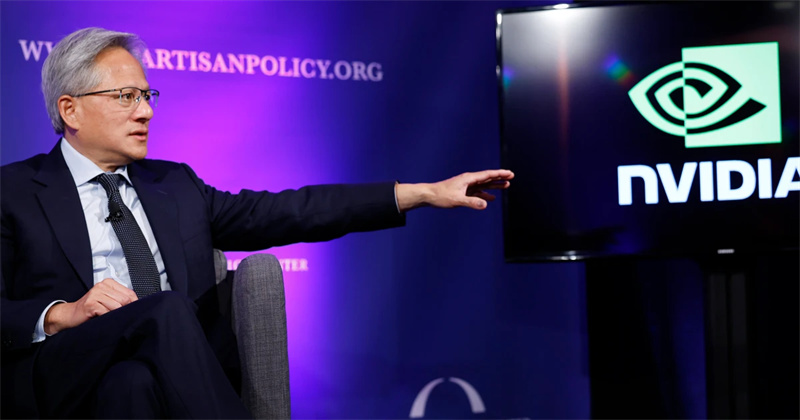NVIDIA has become a major player in the semiconductor industry, and its success has made its employees wealthy. Recently, an investor revealed that 78% of NVIDIA employees have become millionaires, with half of them boasting a net worth of around $25 million (approximately 183 million CNY).
NVIDIA, with a market capitalization of $3.22 trillion, is currently the second-largest company in the world, only behind Apple.
However, the company has faced significant challenges recently. On January 13, NVIDIA's stock price dropped sharply, continuing its downward trajectory from earlier in the week. By the close of trading on January 13, NVIDIA shares had fallen to $131.32, dipping below $130 at one point. Over the past four trading days, the company's market value has shrunk by over $400 billion (about 2.9 trillion CNY).
The Wealth Behind High Intensity Work Culture
As NVIDIA's stock price has skyrocketed by over 3700% since 2019, employees have benefited significantly from the rising value of their stock options. According to investor Ruben D, 78% of NVIDIA's workforce has become millionaires, with half of them having net assets exceeding $25 million.
Despite these financial gains, employees are under immense pressure due to the company's aggressive business strategy. With fierce competition from giants like Intel, AMD, and Broadcom, NVIDIA constantly needs to invest in research and development to stay ahead. To support its high valuation, many NVIDIA employees report working 7 days a week, with overtime often extending until 2 AM.
The pressure on employees is immense, and many have little time to spend with their families. Some are even contemplating a "semi-retirement" to cope with the work-life imbalance. CEO Jensen Huang addressed these concerns during a recent all-staff meeting, stating that every employee should manage their time like a CEO. Despite these challenges, NVIDIA ranked second on Glassdoor's 2024 "Best Places to Work" list, highlighting its strong reputation in the tech industry.

New Product Launches at CES 2025
At the recent CES 2025 event, NVIDIA was once again in the spotlight, unveiling a range of new products that generated global attention. On January 7, Jensen Huang delivered a keynote address, during which he announced the release of the RTX 50 series GPUs and the next-generation automotive processor, Thor. Huang also confirmed that Blackwell has begun mass production, and all major cloud service providers are now utilizing the technology.
NVIDIA also introduced its Cosmos Foundation Model, which can transform images and text into actionable tasks for robots, integrating vision and language understanding for complex actions. Additionally, NVIDIA's Omniverse platform is accelerating the development and testing of autonomous driving systems through a seamless virtual-to-reality pipeline.
A New Threat: US Government's AI Chip Regulations
Despite these advancements, NVIDIA's biggest threat may come from the U.S. government. On January 13, the Biden administration announced new regulations limiting the export of AI chips to most countries, with a cap on computing power for AI GPUs. Under the new rules, U.S. companies can only sell up to 50,000 AI GPUs to most countries between 2025 and 2027, while 18 key allies and partners will remain exempt from these restrictions.
Both NVIDIA and Oracle have criticized the new regulations. In a statement, NVIDIA accused the Biden administration of attempting to impose “bureaucratic control” over global semiconductor and software markets with a “broadly overreaching action” that threatens America's technological leadership. Oracle has called the new rules “one of the most disruptive policies in the history of the U.S. tech industry,” claiming that the regulations will shrink the global market for American companies by 80%.
The Semiconductor Industry Association and other technology organizations, such as the Information Technology Industry Council (ITI), have also voiced concerns. ITI warned that “rushed regulations” could have significant negative consequences on the global semiconductor supply chain.
In response to the news, semiconductor stocks took a hit on January 13, with the Philadelphia Semiconductor Index dropping by more than 2%. NVIDIA, AMD, Micron Technology, and several other companies saw significant declines in their stock prices.
+86 191 9627 2716
+86 181 7379 0595
8:30 a.m. to 5:30 p.m., Monday to Friday
